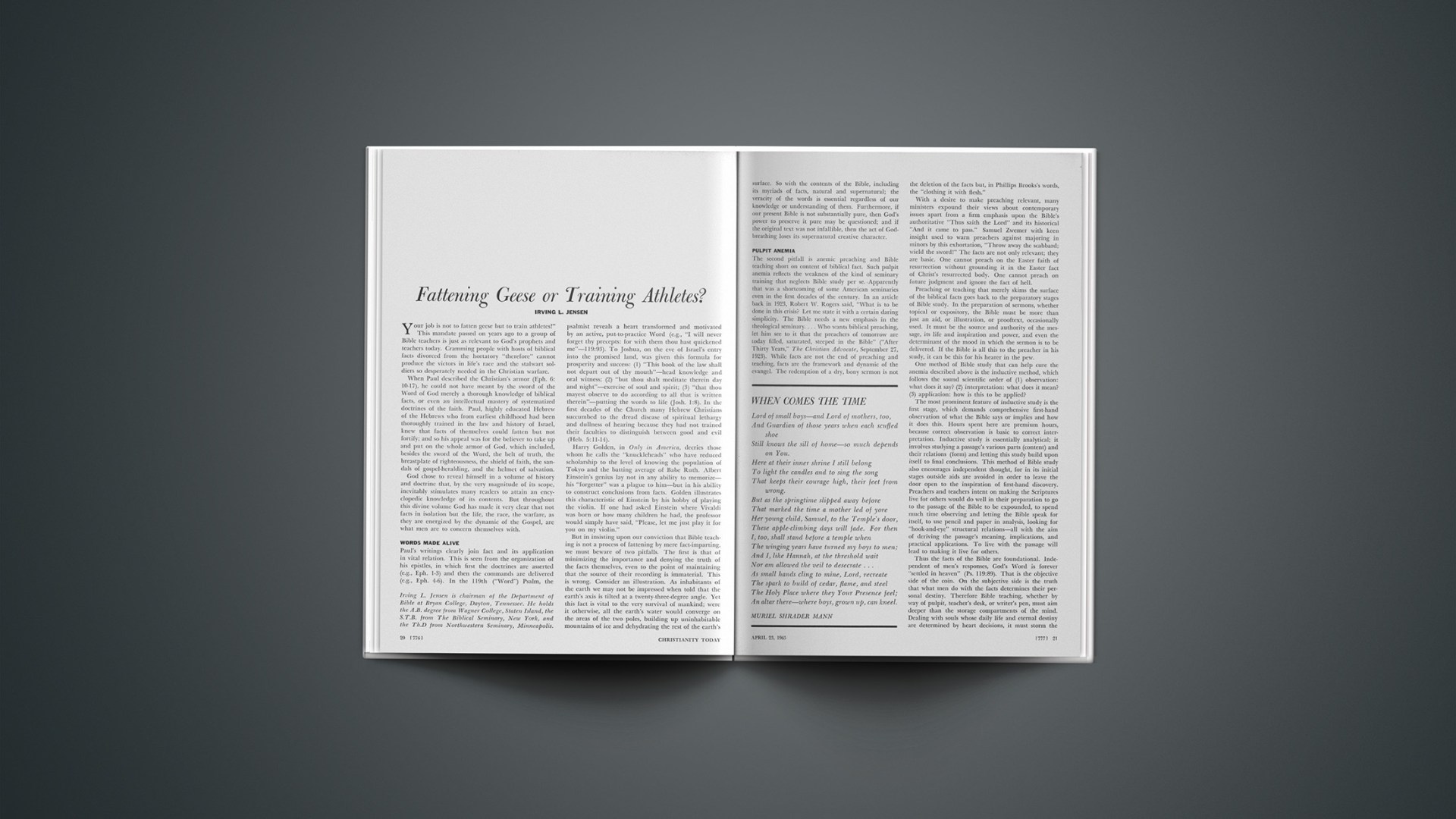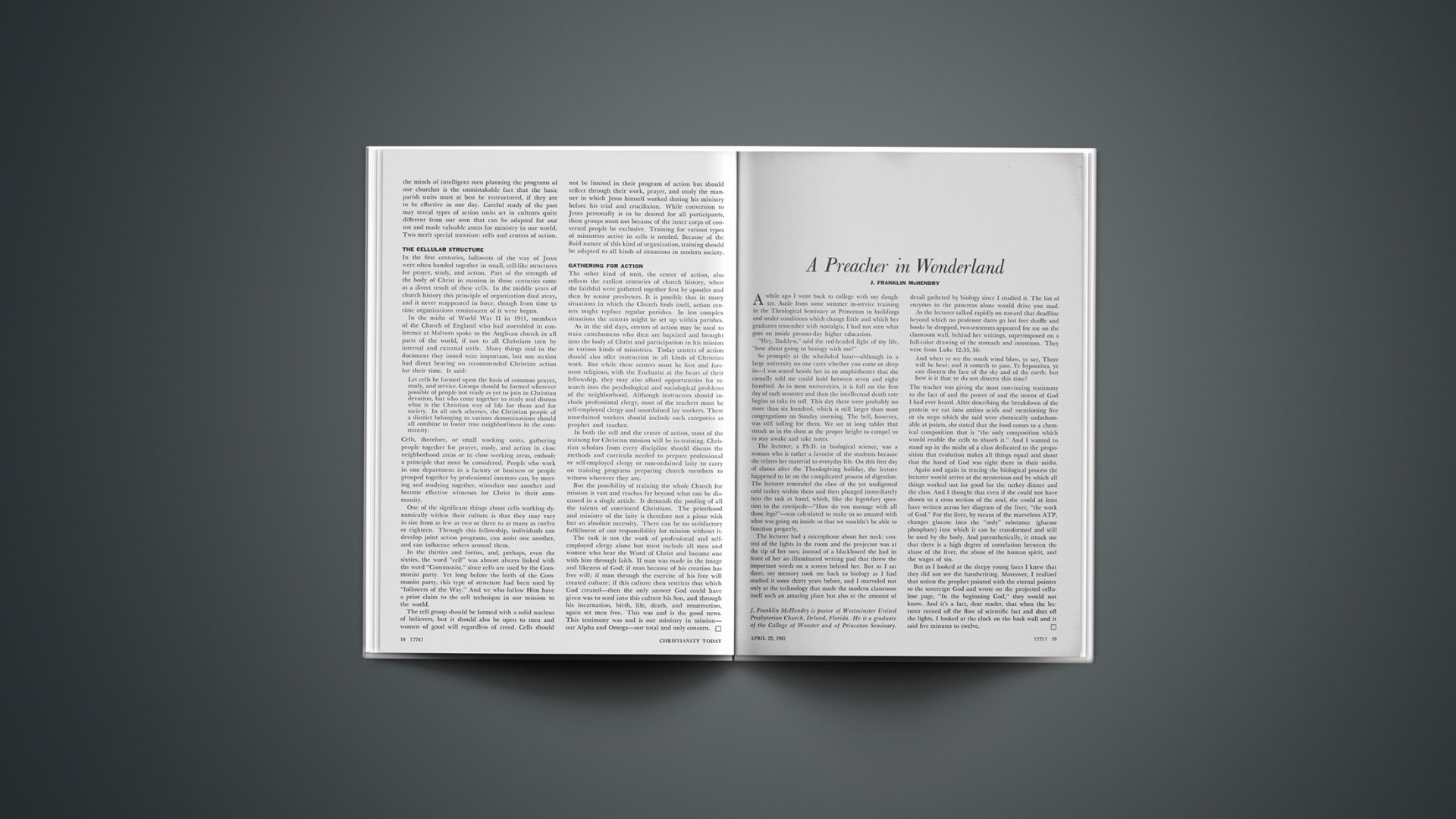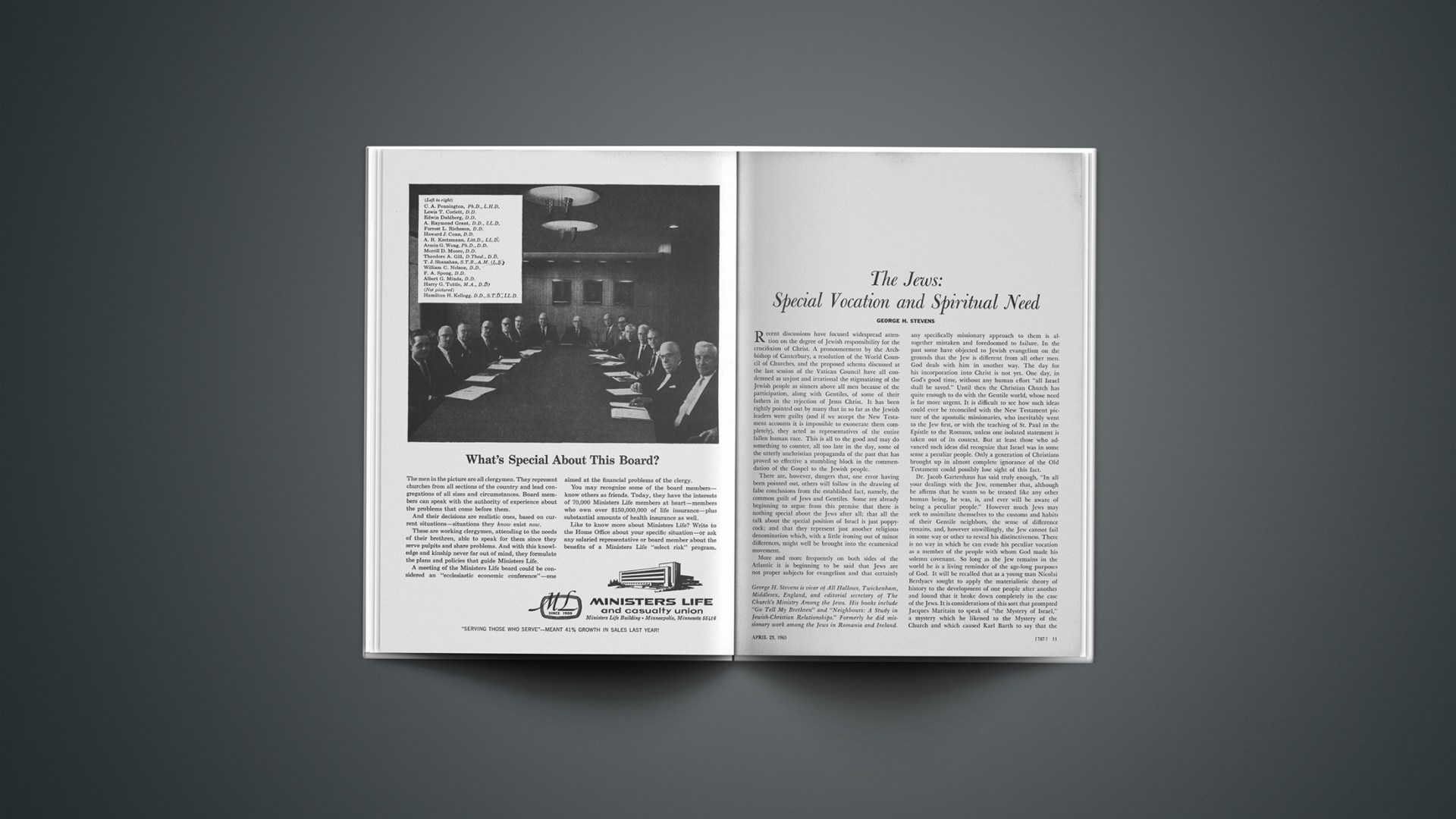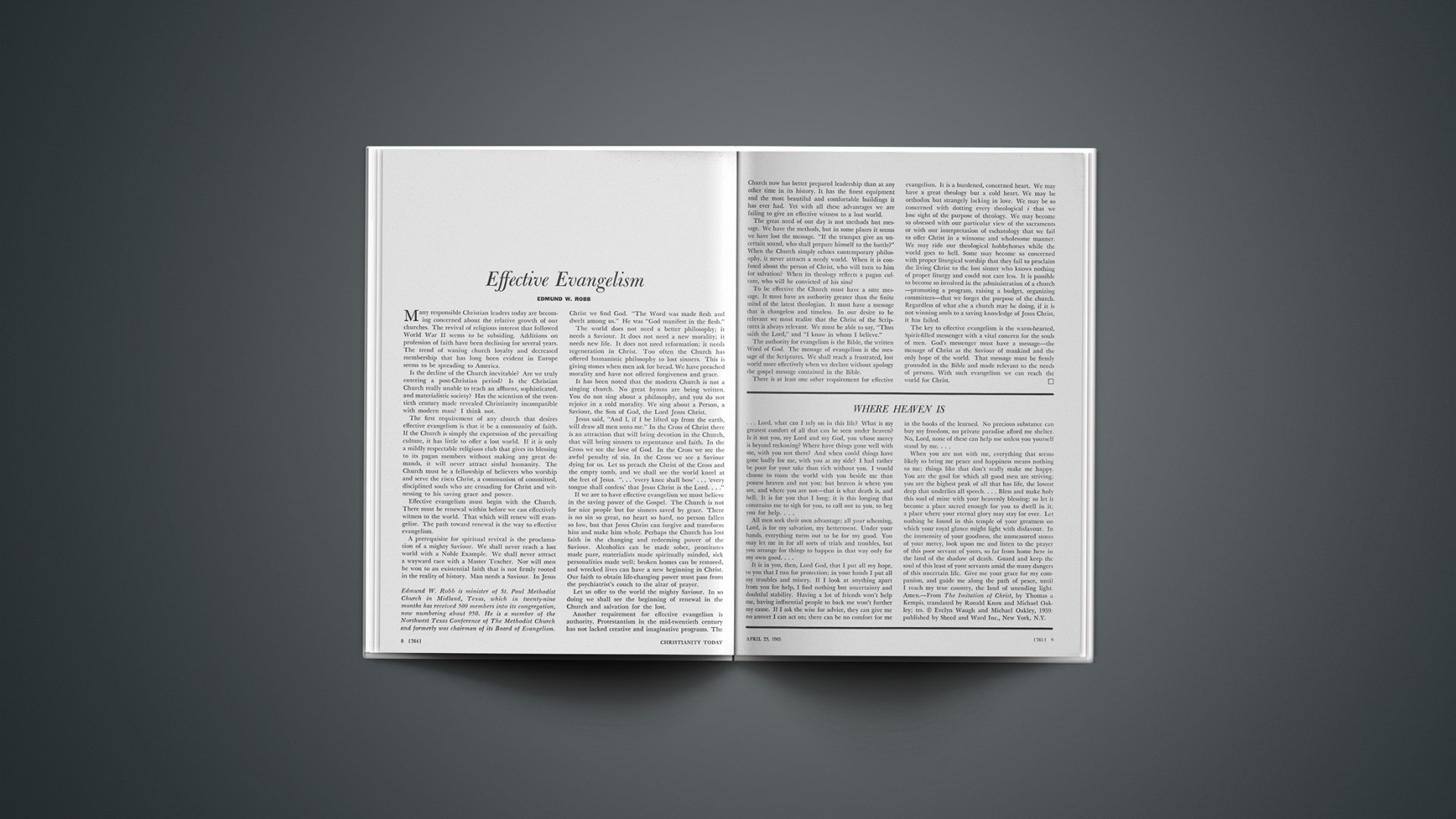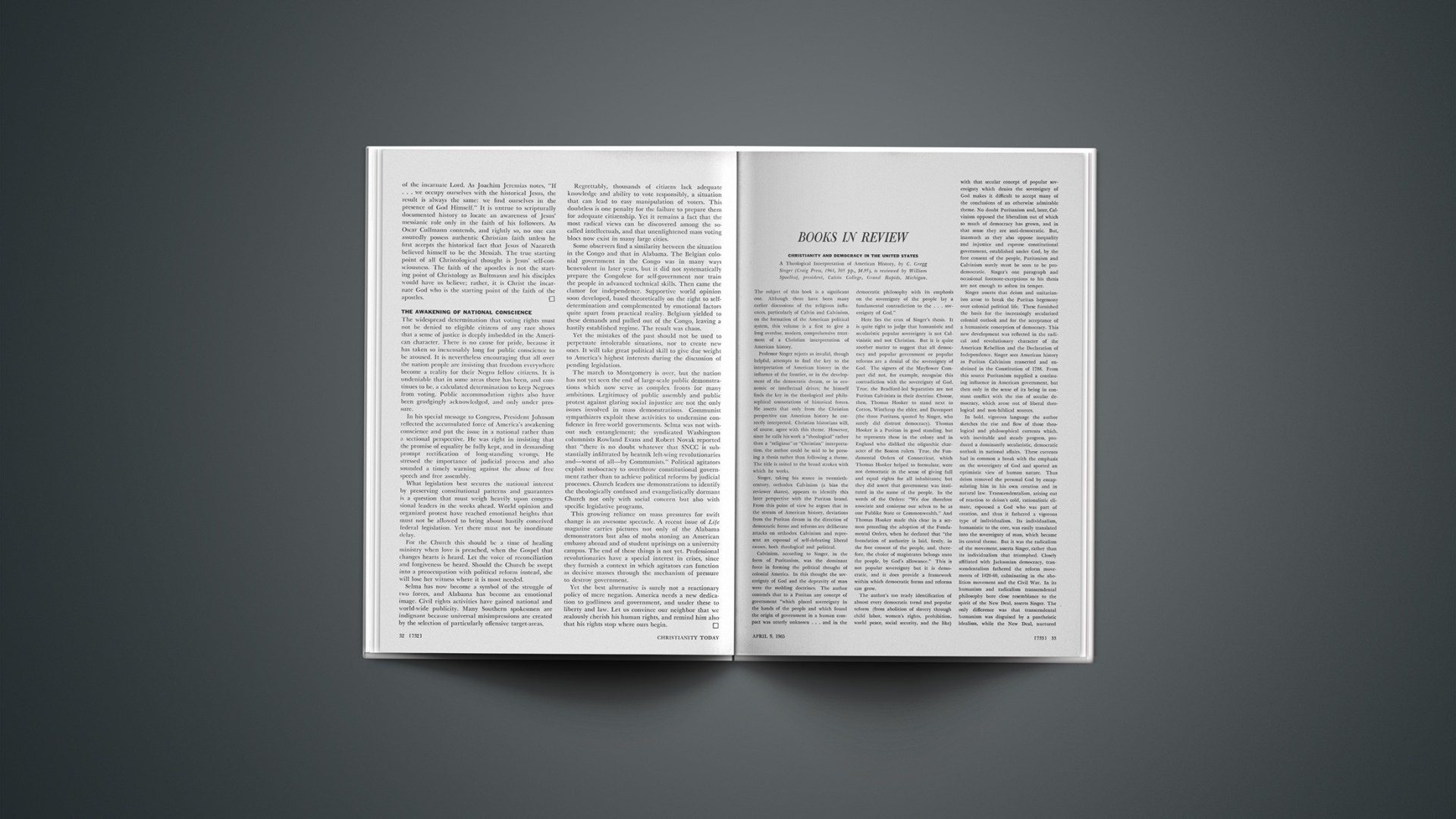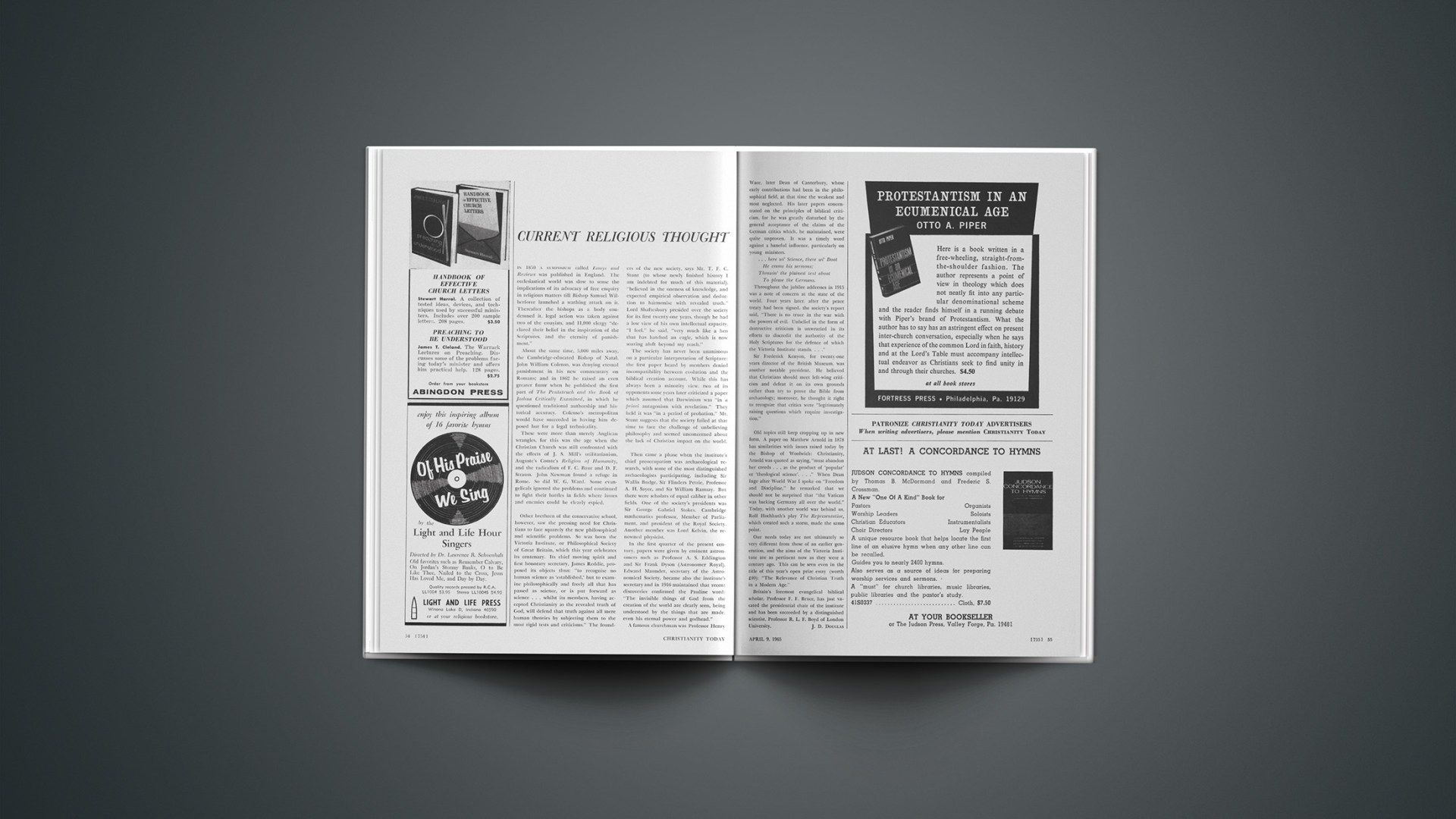Your job is not to fatten geese but to train athletes!” This mandate passed on years ago to a group of Bible teachers is just as relevant to God’s prophets and teachers today. Cramming people with hosts of biblical facts divorced from the hortatory “therefore” cannot produce the victors in life’s race and the stalwart soldiers so desperately needed in the Christian warfare.
When Paul described the Christian’s armor (Eph. 6:10–17), he could not have meant by the sword of the Word of God merely a thorough knowledge of biblical facts, or even an intellectual mastery of systematized doctrines of the faith. Paul, highly educated Hebrew of the Hebrews who from earliest childhood had been thoroughly trained in the law and history of Israel, knew that facts of themselves could fatten but not fortify; and so his appeal was for the believer to take up and put on the whole armor of God, which included, besides the sword of the Word, the belt of truth, the breastplate of righteousness, the shield of faith, the sandals of gospel-heralding, and the helmet of salvation.
God chose to reveal himself in a volume of history and doctrine that, by the very magnitude of its scope, inevitably stimulates many readers to attain an encyclopedic knowledge of its contents. But throughout this divine volume God has made it very clear that not facts in isolation but the life, the race, the warfare, as they are energized by the dynamic of the Gospel, are what men are to concern themselves with.
Words Made Alive
Paul’s writings clearly join fact and its application in vital relation. This is seen from the organization of his epistles, in which first the doctrines are asserted (e.g., Eph. 1–3) and then the commands are delivered (e.g., Eph. 4–6). In the 119th (“Word”) Psalm, the psalmist reveals a heart transformed and motivated by an active, put-to-practice Word (e.g., “I will never forget thy precepts: for with them thou hast quickened me”—119:93). To Joshua, on the eve of Israel’s entry into the promised land, was given this formula for prosperity and success: (1) “This book of the law shall not depart out of thy mouth”—head knowledge and oral witness; (2) “but thou shalt meditate therein day and night”—exercise of soul and spirit; (3) “that thou mayest observe to do according to all that is written therein”—putting the words to life (Josh. 1:8). In the first decades of the Church many Hebrew Christians succumbed to the dread disease of spiritual lethargy and dullness of hearing because they had not trained their faculties to distinguish between good and evil (Heb. 5:11–14).
Harry Golden, in Only in America, decries those whom he calls the “knuckleheads” who have reduced scholarship to the level of knowing the population of Tokyo and the batting average of Babe Ruth. Albert Einstein’s genius lay not in any ability to memorize—his “forgetter” was a plague to him—but in his ability to construct conclusions from facts. Golden illustrates this characteristic of Einstein by his hobby of playing the violin. If one had asked Einstein where Vivaldi was born or how many children he had, the professor would simply have said, “Please, let me just play it for you on my violin.”
But in insisting upon our conviction that Bible teaching is not a process of fattening by mere fact-imparting, we must beware of two pitfalls. The first is that of minimizing the importance and denying the truth of the facts themselves, even to the point of maintaining that the source of their recording is immaterial. This is wrong. Consider an illustration. As inhabitants of the earth we may not be impressed when told that the earth’s axis is tilted at a twenty-three-degree angle. Yet this fact is vital to the very survival of mankind; were it otherwise, all the earth’s water would converge on the areas of the two poles, building up uninhabitable mountains of ice and dehydrating the rest of the earth’s surface. So with the contents of the Bible, including its myriads of facts, natural and supernatural; the veracity of the words is essential regardless of our knowledge or understanding of them. Furthermore, if our present Bible is not substantially pure, then God’s power to preserve it pure may be questioned; and if the original text was not infallible, then the act of God-breathing loses its supernatural creative character.
Pulpit Anemia
The second pitfall is anemic preaching and Bible teaching short on content of biblical fact. Such pulpit anemia reflects the weakness of the kind of seminary training that neglects Bible study per se. Apparently that was a shortcoming of some American seminaries even in the first decades of the century. In an article back in 1923, Robert W. Rogers said, “What is to be done in this crisis? Let me state it with a certain daring simplicity. The Bible needs a new emphasis in the theological seminary.… Who wants biblical preaching, let him see to it that the preachers of tomorrow are today filled, saturated, steeped in the Bible” (“After Thirty Years,” The Christian Advocate, September 27, 1923). While facts are not the end of preaching and teaching, facts are the framework and dynamic of the evangel. The redemption of a dry, bony sermon is not the deletion of the facts but, in Phillips Brooks’s words, the “clothing it with flesh.”
With a desire to make preaching relevant, many ministers expound their views about contemporary issues apart from a firm emphasis upon the Bible’s authoritative “Thus saith the Lord” and its historical “And it came to pass.” Samuel Zwemer with keen insight used to warn preachers against majoring in minors by this exhortation, “Throw away the scabbard; wield the sword!” The facts are not only relevant; they are basic. One cannot preach on the Easter faith of resurrection without grounding it in the Easter fact of Christ’s resurrected body. One cannot preach on future judgment and ignore the fact of hell.
Preaching or teaching that merely skims the surface of the biblical facts goes back to the preparatory stages of Bible study. In the preparation of sermons, whether topical or expository, the Bible must be more than just an aid, or illustration, or prooftext, occasionally used. It must be the source and authority of the message, its life and inspiration and power, and even the determinant of the mood in which the sermon is to be delivered. If the Bible is all this to the preacher in his study, it can be this for his hearer in the pew.
One method of Bible study that can help cure the anemia described above is the inductive method, which follows the sound scientific order of (1) observation: what does it say? (2) interpretation: what does it mean? (3) application: how is this to be applied?
The most prominent feature of inductive study is the first stage, which demands comprehensive first-hand observation of what the Bible says or implies and how it does this. Hours spent here are premium hours, because correct observation is basic to correct interpretation. Inductive study is essentially analytical; it involves studying a passage’s various parts (content) and their relations (form) and letting this study build upon itself to final conclusions. This method of Bible study also encourages independent thought, for in its initial stages outside aids are avoided in order to leave the door open to the inspiration of first-hand discover)’. Preachers and teachers intent on making the Scriptures live for others would do well in their preparation to go to the passage of the Bible to be expounded, to spend much time observing and letting the Bible speak for itself, to use pencil and paper in analysis, looking for “hook-and-eye” structural relations—all with the aim of deriving the passage’s meaning, implications, and practical applications. To live with the passage will lead to making it live for others.
Thus the facts of the Bible are foundational. Independent of men’s responses, God’s Word is forever “settled in heaven” (Ps. 119:89). That is the objective side of the coin. On the subjective side is the truth that what men do with the facts determines their personal destiny. Therefore Bible teaching, whether by way of pulpit, teacher’s desk, or writer’s pen, must aim deeper than the storage compartments of the mind. Dealing with souls whose daily life and eternal destiny are determined by heart decisions, it must storm the will and plead for the choice of redemptive options. This is what Paul had in mind in the succinct charge to Timothy, his understudy, “Preach [Greek kerusso] the Word!” Kerusso means to proclaim as a herald sent from a throne, and so Paul was telling Timothy that as God’s ambassador he was to claim a response from his hearers.
Training athletes is a challenging vocation. As the raw recruits for track stand on the field on the first day of training, the keen eye of the coach scans the squad for an initial appraisal. What could he hope for without the miracle of lung and heart, the secret source of endurance, the desire to win? He lays before his charges the goal each member must work for, the toil and faithfulness of training expected, the health habits demanded, the races to be won. The coach will always be around to help and direct; but come the race, the boys will be on their own.
How much more profitable Bible teaching would be if the goal were to train strong, steady Christian runners, helping them to learn to run the race of life on their own. He who teaches thus will be grateful first of all for the efficacy of the Cross, the miracle of the Resurrection, and the power of the Gospel. He will thank God for the raw material, his pupils with their minds and hearts able to choose and learn and grow, their vision of faith and desire to know and serve God, their perseverance to learn at any cost. From the Bible the teacher will impart the Gospel of grace, the challenge of the Christian’s race, the disciplines of spiritual training, the essential sacrifices of self, and the techniques of the race. In so teaching, the preacher will make it clear to his congregation that his sermon is not a parcel to be carried away at the benediction and stored until needed; rather, it is to be put to the test now and used throughout the week. In the classroom the teacher will aim to show his pupils how to study the Bible for themselves and how to clothe their lives with it. Preachers and teachers will offer help and guidance along the way. But when all is said, they must leave their charges with the challenge, “The race is yours! Run it by the Book. From start to finish keep your eye on Jesus. And at the finish line, he will be there.”

